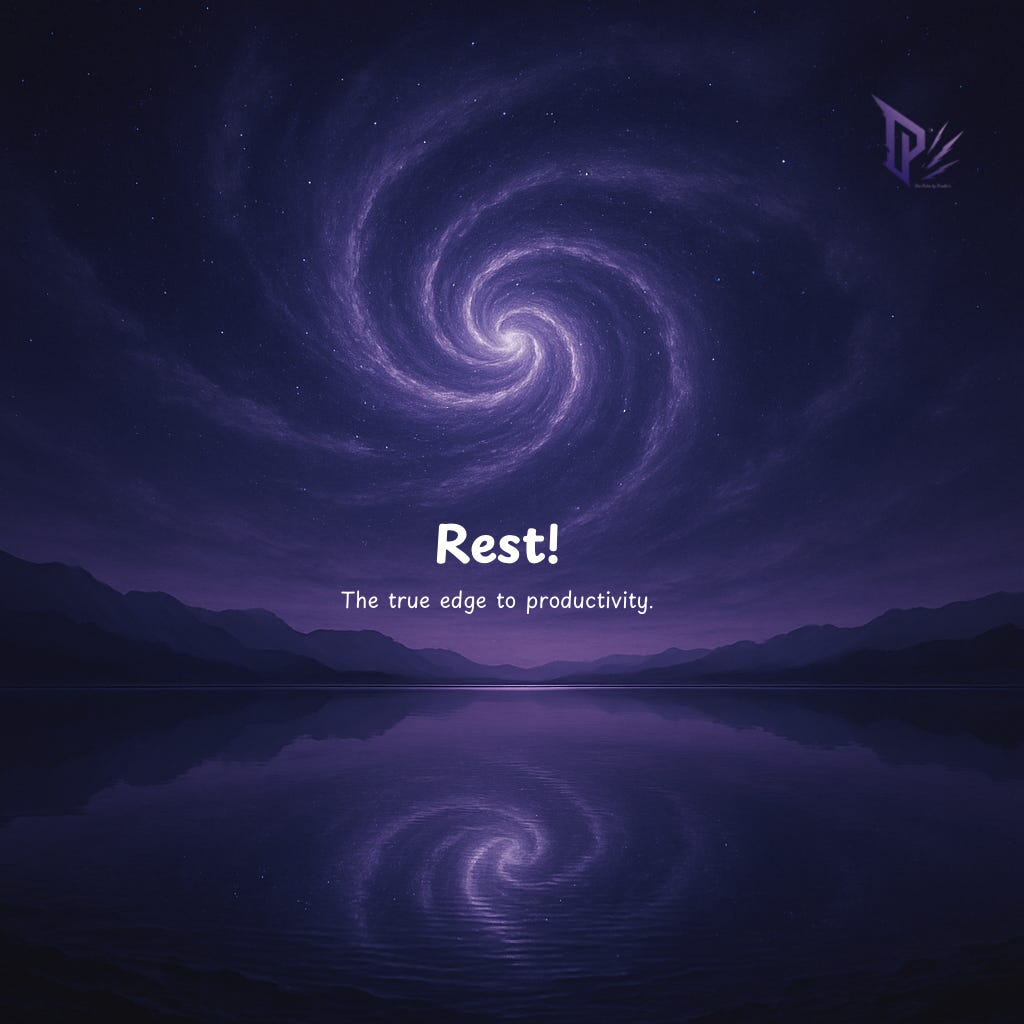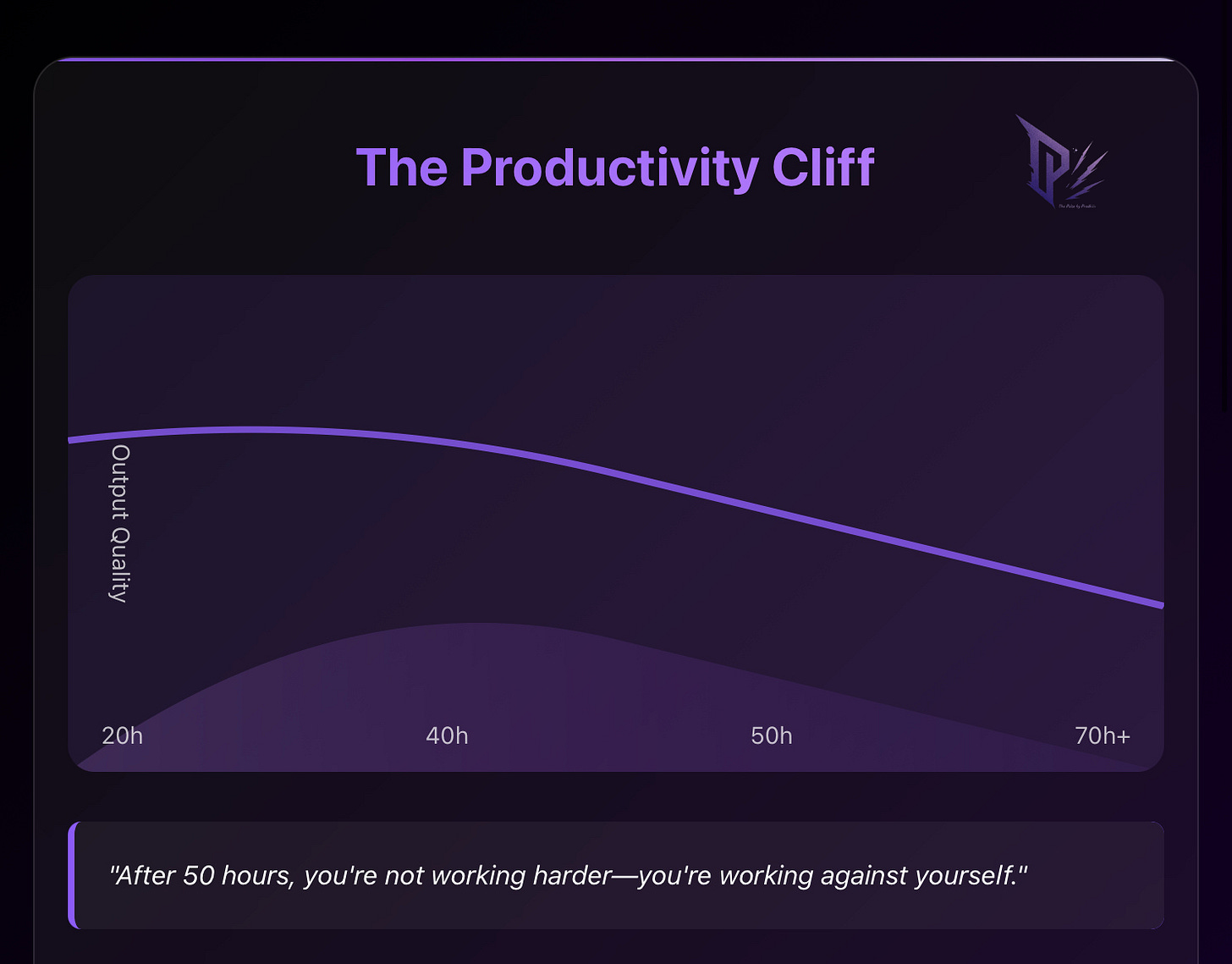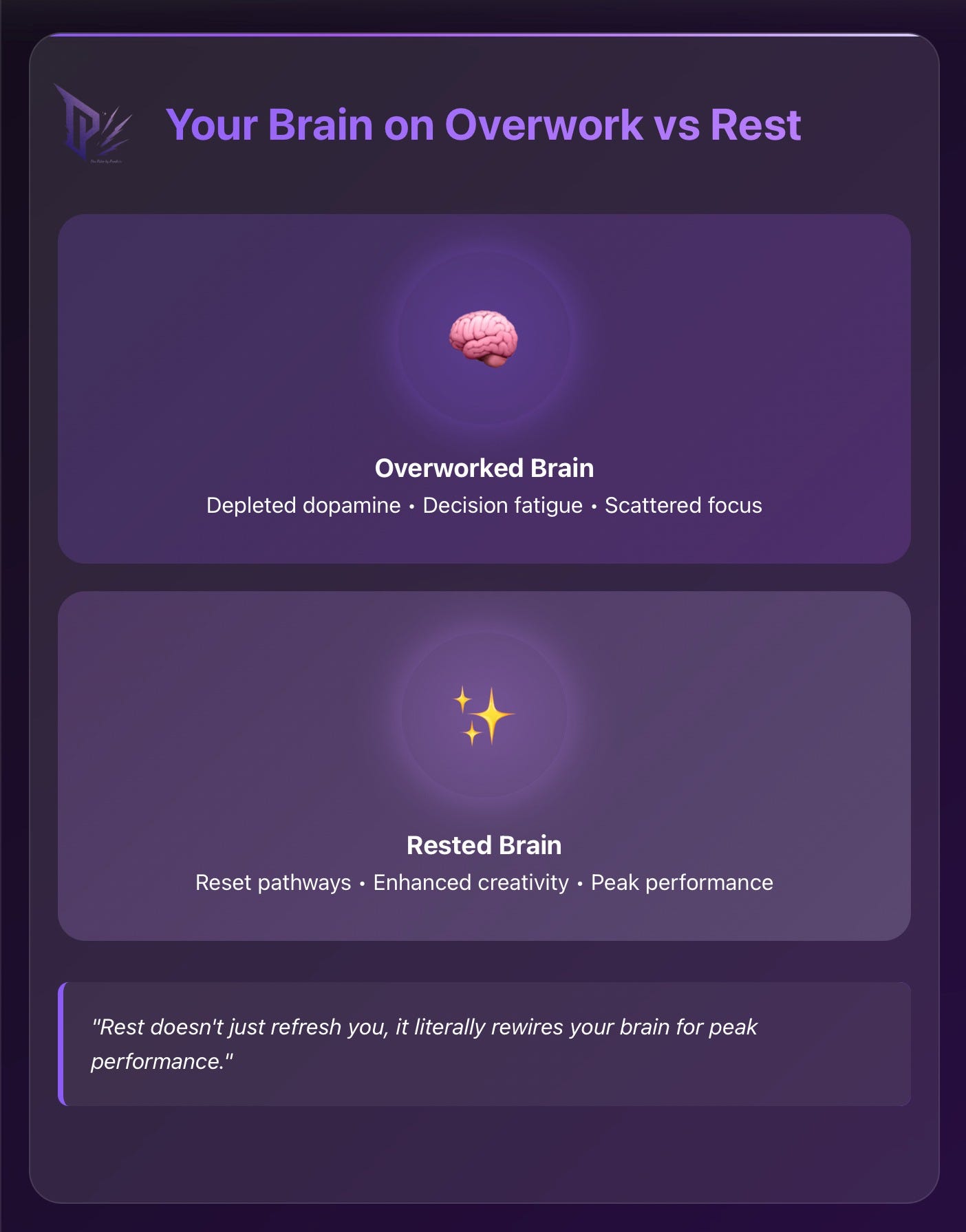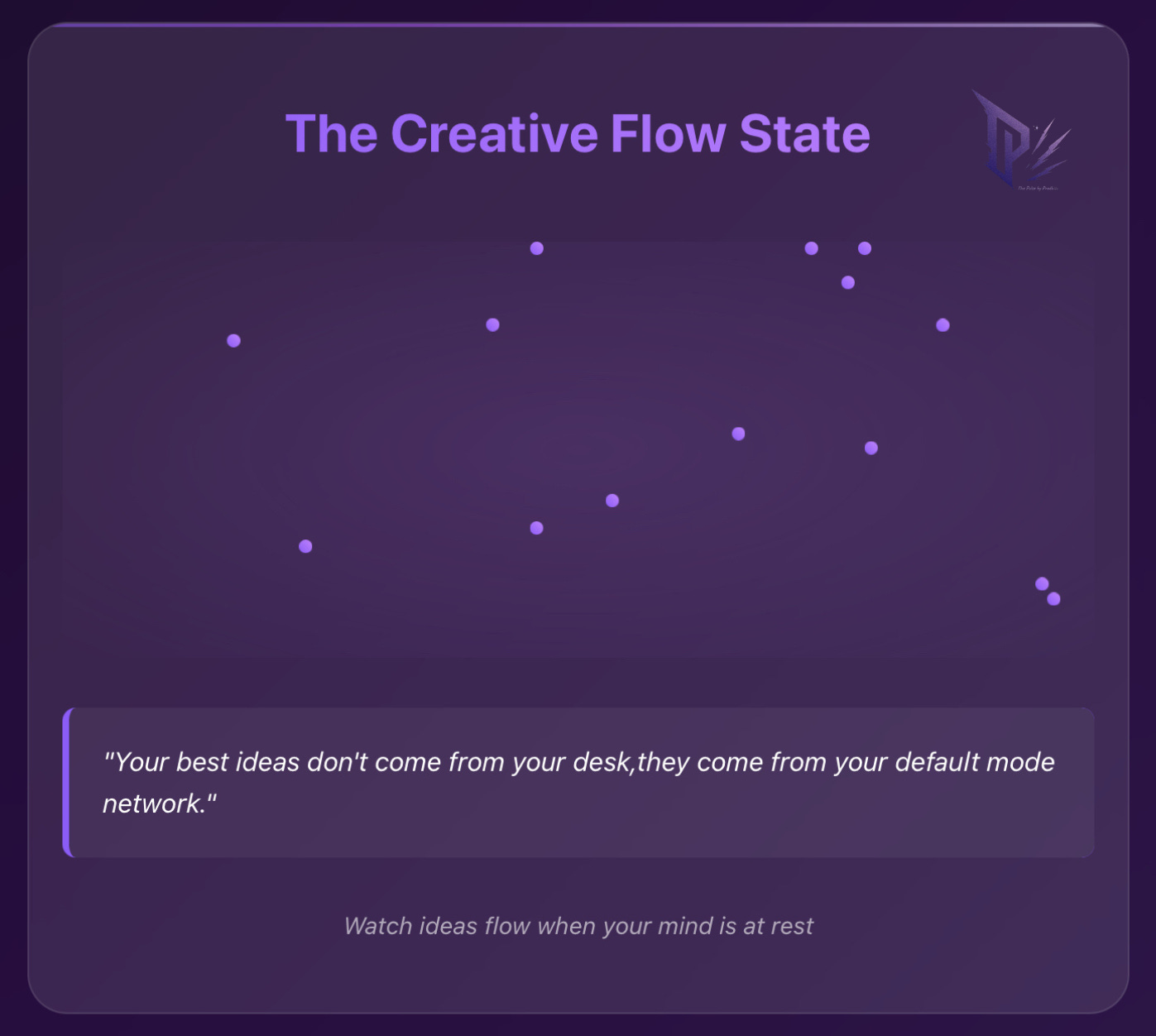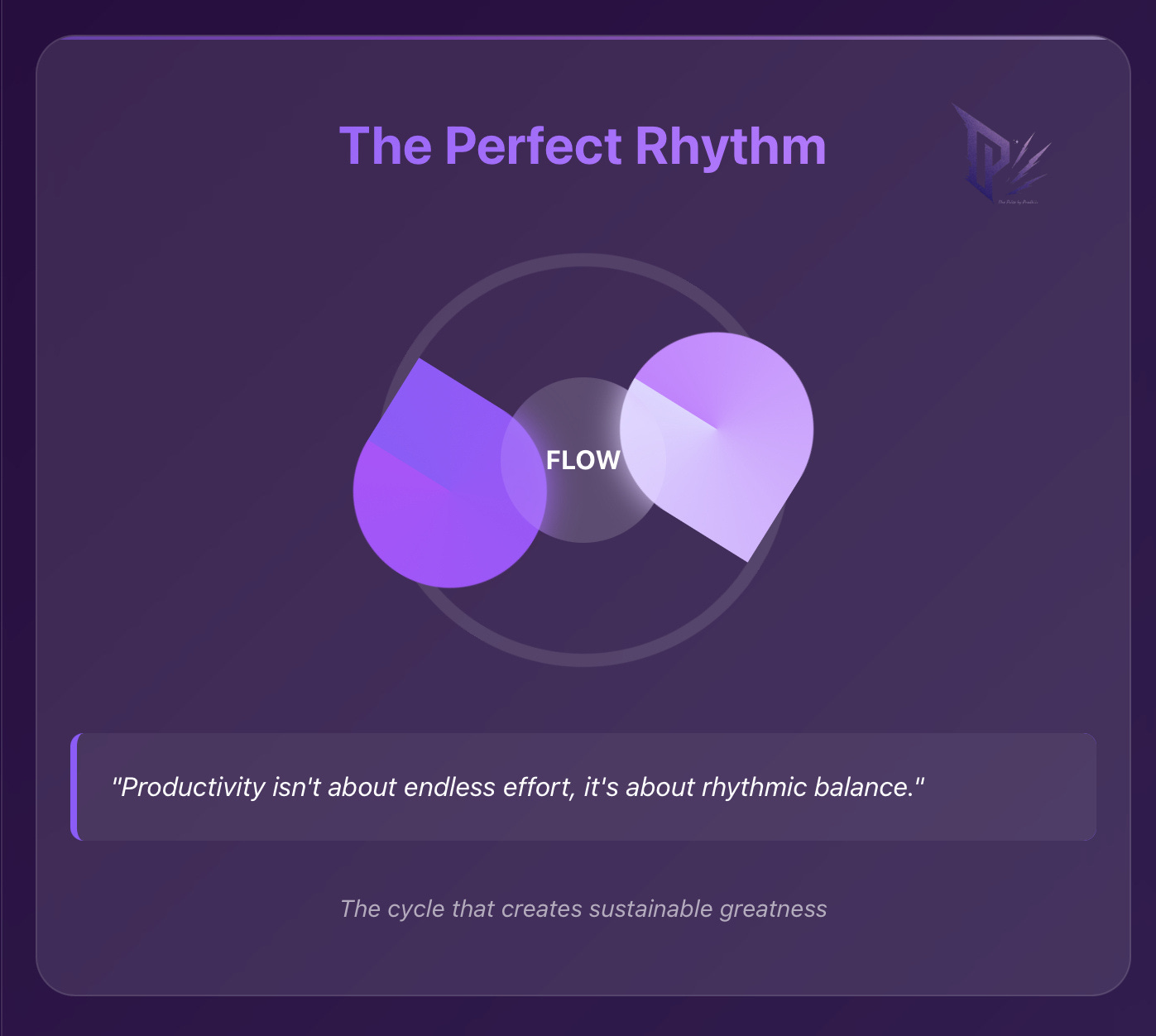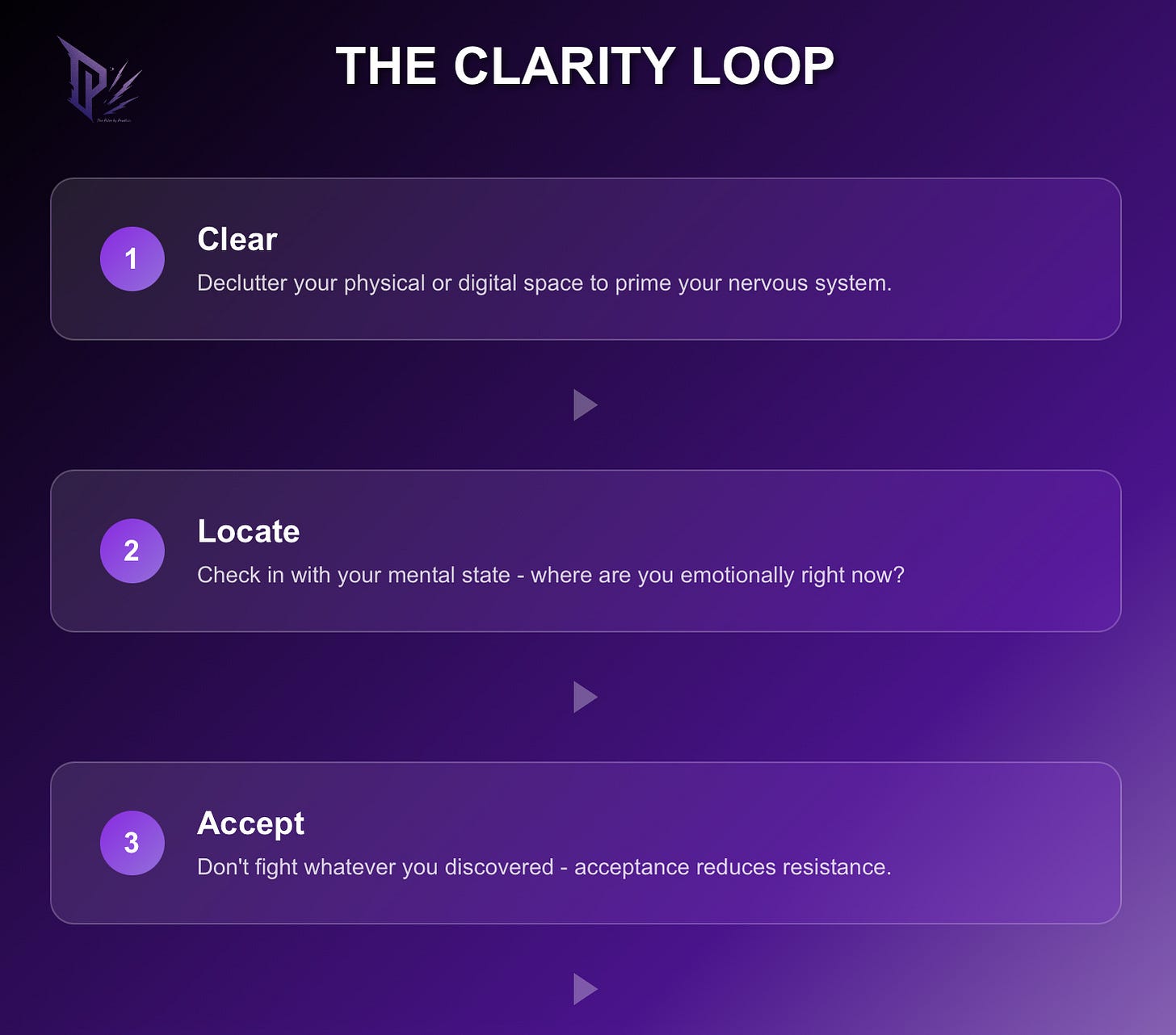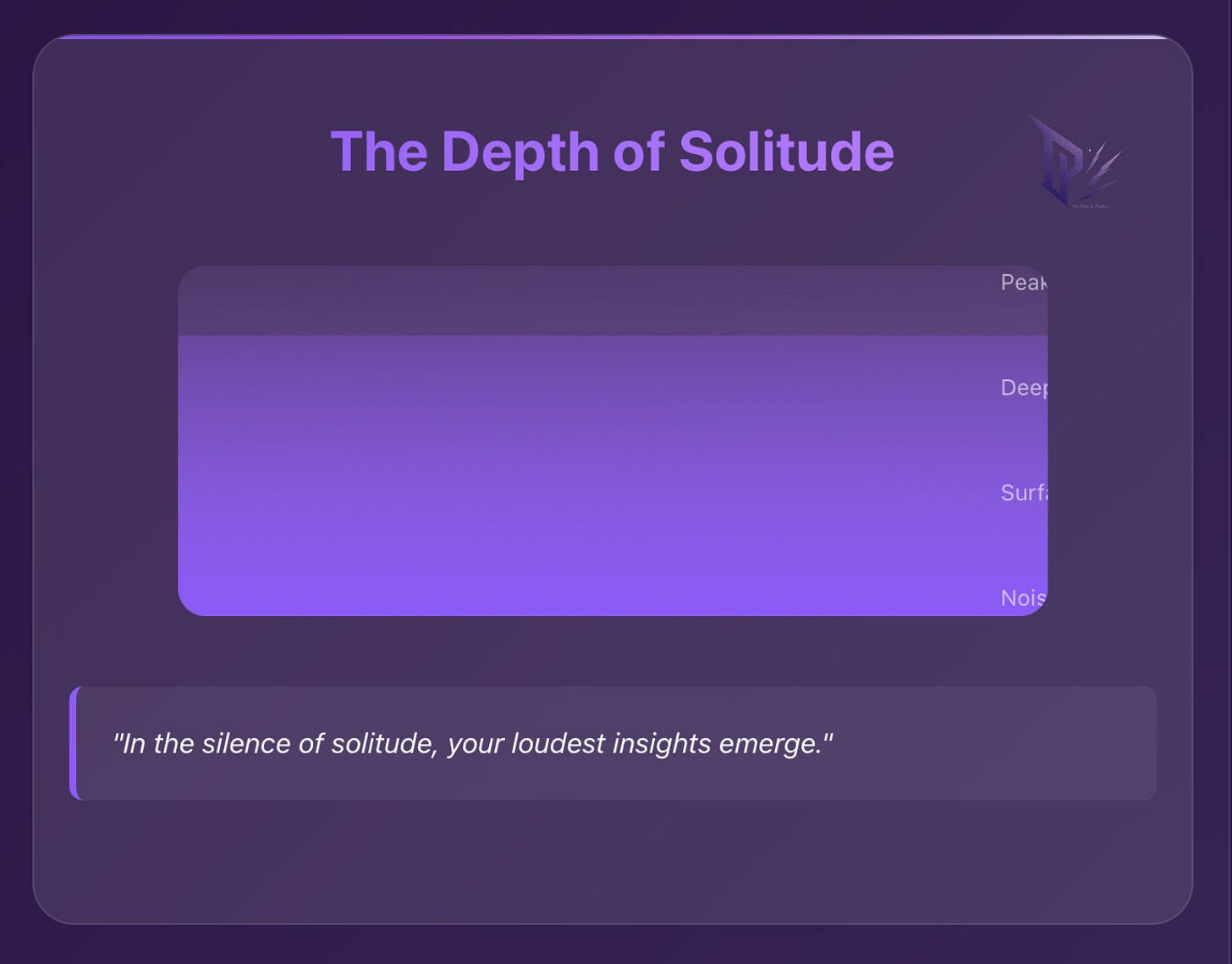Letter II: Rest, The Invisible Edge to Productivity
Finding Creativity with Peace.
Merry Christmas 🎄 and Welcome to the second edition of The Pulse!
In this letter, we’re diving deep into something really simple yet profound: Rest!
Now, if you think rest is merely downtime,
Then you are gravely mistaken.
Because rest is the fundamental, sometimes underrated, and often an overlooked knot that ties your productivity and creativity.
Well, the world constantly glorifies hustling 24/7.
But science, history, and my personal experience paint a different picture:
One where rest is the secret ingredient to consistent, sustainable greatness.
So let's dive in and see how so, along with some custom visuals that I've woven in this letter!
1. The Blatant Lie: More Work = More Output
You see, productivity isn’t about maximizing hours, it’s about maximizing impact.
Yet, in our desire for more, we often sacrifice the very thing that fuels our best work - rest.
Why?
Because the modern narrative has always equated busyness with achievement.
In my opinion that's pretty superficial and unnecessary.
And quite literally, the ultimate road to “burnout” (in misery, of course).
Even I have been a victim of this in the past, until I realized something…
And it is that: Overwork kills focus, creativity, and motivation. Without rest, you’re running on fumes, no matter how hard you push.
A study by Stanford University revealed that after 50 hours of work per week, productivity per hour drops sharply.
At 70+ hours, it’s practically nonexistent. You’re working more (obviously), but achieving less or basically nothing.
So, keep in mind that doing more work or putting in too many hours doesn't mean you'll get the same amount of output.
It's the quality of your work, what you are working on and who you are working with that matters.
These factors determine that high-quality, high-reward outputs that you are aiming for.
2. What Rest Really Means
Rest isn’t just sleep or relaxing while you scroll or binge on your phone.
In fact, true rest comes in many forms, and each with its own unique benefits:
First is physical rest: This is basically sleep, naps, or simply lying down to recharge your body.
Next is mental rest: Now this is where most people fail, and it's stepping away from those screens, practicing mindfulness, or journaling to clear your head.
(I strongly encourage you to journal, write your thoughts down, write about anything, it's one of the best ways to become more articulate and wiser).
And lastly we have creative rest: Which is exposing yourself to art, nature, or hobbies that refuel your imagination.
So, while the word itself signals to basically one thing (sleep).
That little diversity in its forms, when utilised the right way, gives you the boost you need to recover and perform better.
3. The Neuroscience of Rest
Now again,
Rest isn’t just a “nice to have” thing.
It’s also a biological necessity that rewires your brain for peak performance.
So, if you neglect it, or get overshadowed by short, fleeting pleasures, then you are basically rolling down the path of mental destruction.
And not long after, you'll land into decision fatigue, lack of willpower, followed by a strong impulse to do absolutely nothing.
That's why it's important to keep your habits in check (each one of them).
Rest also triggers the brain’s dopamine pathways to reset and repair.
So try practicing a simple thing like exercise, or more sunlight exposure, and practice delayed gratification.
Which in turn will increase your dopamine sensitivity, making you more motivated, focused, and resilient.
A contradictory, and often a wise decision is to sometimes “do something hard” even if you are feeling depleted.
The reason?
Because it optimizes neuroplasticity, the brain’s ability to learn and adapt, allowing you to adjust better to hard circumstances, and your life.
So it's a gentle reminder for you to fix your habits, slow down a little, and breathe in the moment.
4. The Hidden Creative Breakthroughs
Personally, most of my great ideas such as the one in Letter V, Letter VI and more, came to me when I was in a state of rest.
Not when I was juggling multiple things at once or trying to obsessively focus on something.
Frankly speaking it's more like a peaceful practice.
Furthermore, history also has some solid evidence of this, for example:
Einstein’s Relativity: Born during his “thought experiments” while daydreaming.
Dalí and Edison: Both used micro-naps to access creative insights.
Steve Jobs: Known for his long walks, where he’d find solutions to complex problems.
Why does it work, though?
Rest activates the brain’s default mode network (DMN).
Which is responsible for reflection, imagination, and creative problem-solving.
This is the reason why most of your best ideas often pop in while you are in the shower or taking a walk.
And quite evidently when you're not at your desk.
Now, this doesn't mean that you can't conjure great ideas while sitting on your desk, that instant inspiration moment can happen anywhere.
It's just that, DMN works the best when your brain is fully relaxed, free from the unwanted (extremely annoying) stress that daily life burdens you with.
So try to let go of your worries once in a while, life's like a journey, and you are here to live, NOT JUST SURVIVE.
Enjoy your present moments and that'll automatically put you in a creative rest mode, hence the exceptional flow of ideas and thoughts.
5. The Rest-Action Cycle
Think of rest and work as two sides of the same coin.
Productivity is definitely not a product of endless effort (as advertised).
It originates from the beautiful harmony between focused action and intentional rest.
And if you can't attain that balance yet?
Then let's try some simple, effective, and practical frameworks:
The Pomodoro Technique: It's a simple method where you focus for 25 minutes, then take a short 5-minute break. You are working in bursts here. This rhythm can help you stay focused while avoiding burnout.
The Clarity Loop: This is a framework that I developed on my own, and it goes like this: Clear → Locate → Accept → Re-align → Intend → Tidy → Yield. You clear your space, see where you are, accept your current situation, choose a better intention, prepare yourself, then execute.
Deep Rest Intervals (undeniably crucial): Commit to quality sleep (no less than 7-9 hours) and disconnect from screens an hour before bed.
That's all you need to rewire yourself without falling into the deep rabbit hole of nonsense “do a cold plunge in winter at 3am” advice.
Keep it simple so that it can be sustained.
6. The Hidden Power of Solitude in Rest
And then sometimes rest has a deeper, abstract meaning.
Sometimes it’s simply about being alone with your thoughts.
Why is it essential?
It's because solitude gives you the mental space to process emotions, reflect on decisions, and reset priorities.
It’s where clarity steps in, and you get to meet yourself more deeply, and genuinely.
So, I'd say try to:
Dedicate 10-15 minutes daily to solitude (gradually increase the time as you move on).
No screens, no people, no distractions. Just sit with yourself.
Watch the stars, the delicate leaves, notice everything around you quietly.
Which basically means, spend some truly alone (you) time.
Let your thoughts wander, let your emotions flutter.
But stay unmoved.
And you'll (always) be surprised by the insights you uncover during these quiet moments.
They're often extremely valuable and insanely useful.
Another benefit is that you'll cultivate: Peace!
7. The Cultural Misunderstanding
The glorification of overwork isn’t just a personal issue, it’s a cultural one as well.
We admire “the grind” but dismiss rest as laziness or something that's “just a means to an end”.
But it's more than that.
Deep rest is the foundation of sustained excellence.
Reminder: It isn’t about how much you do, it’s about how well you do it. And rest is what ensures your “well” stays at its peak.
So never neglect it, instead embrace it.
Rest is Your Magic
If there’s one takeaway that I want you to take from this letter, it’s that:
Rest isn’t a luxury, it’s your competitive edge.
And by honoring it, you honor yourself, your mind, and body.
So, the next time you feel guilty for taking a break, just recall that:
It isn’t just time off, it’s an investment in your best self.
Stay sharp!
Rest well!
As always, thanks for reading, and I'll see you in the next one ^^
Best wishes,
Abhishek Tiwari


